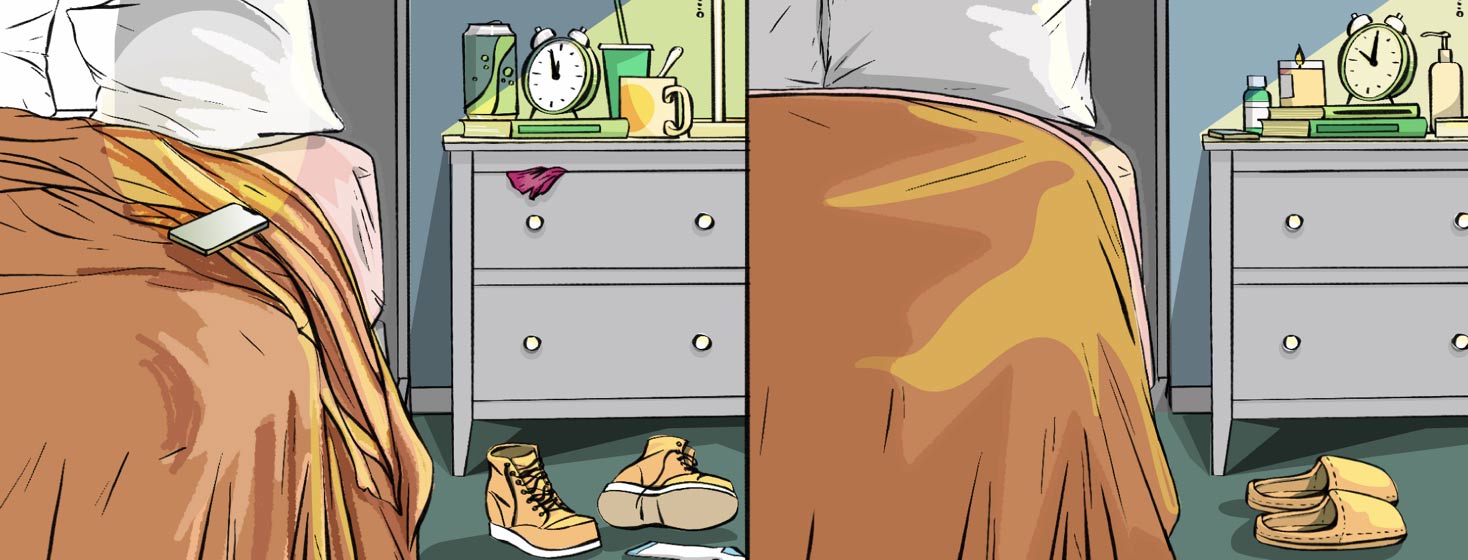Poor Sleep and IBS
I have always been interested in the topic of healthful sleep with regards to my struggles to manage my IBS. I was diagnosed with IBS about 5 years ago. My sleep patterns have changed significantly in that time for various reasons.
The importance of quality sleep
I can honestly say that it is very easy to see how the quality of my sleep corresponds directly to the frequency and severity of my IBS symptoms and flare-ups. To give you an idea, I was about 40 when I was diagnosed with IBS. Much to my chagrin, I have watched the last remnants of my bulletproof 20s and 30s go flying out the door. Everything from knee problems, to ulcers, sciatic nerve issues to IBS...let’s just say I’m a long way from feeling my best these days. Sleep, both too much and too little, plays an incredible part in a lot of this. I would like to share my experience with this issue in hopes that you might be able to take something away from it.
Mental health and sleep
I used to be able to sleep 8 hours, every night, regardless of any physical or mental health issues. My therapist used to joke that at least I got to have that one relief. Over the past 3 years, my sleep has gone from bad to worse. The problem is a lot of us (me) just get used to stuff and don’t do anything about it. I’ve said before, managing illness of any type, working, raising your family, and trying to make ends meet, is overwhelming and draining all on its own. Now, add being tired and having exacerbated symptoms on several fronts due to the lack of sleep. All of a sudden, the well-managed life and illness can become complete chaos. As I think most of us know, is that once you get into chaos mode, it can be very difficult to get out of the tailspin. If you get to this point, I recommend seeing a doctor that specializes in depression and mental health. It is difficult to handle a lot of these types of challenges alone. Let someone help you out.
The consequence of poor sleep with IBS
In my case, I may have several nights of poor sleep, followed by bad diarrhea, bloating and muscle aches, and weakness. This may be followed by periods of too much sleep which provides its own set of problems. So what can we do with this difficult relationship between sleep and our health?
Sleep hygiene
I learned a long time ago about something called ‘sleep hygiene.’ Please look into this idea. It's like Feng Shui'ing your bedroom in a way. My doctor explained that according to sleep hygiene theory, the bedroom should be for sleep and sex only. I also meditate in the bedroom.
I have also found that, in some way, that if I don’t take my probiotics at bedtime, my flares are worse than they would be otherwise. Finding a natural sleep aid was also helpful to me. Obviously, you should also be talking with your doctor about other physical issues that may be affecting your sleep. Hopefully, this has been helpful or at the very least, will help you know that you are not alone should you be experiencing similar problems.

Join the conversation